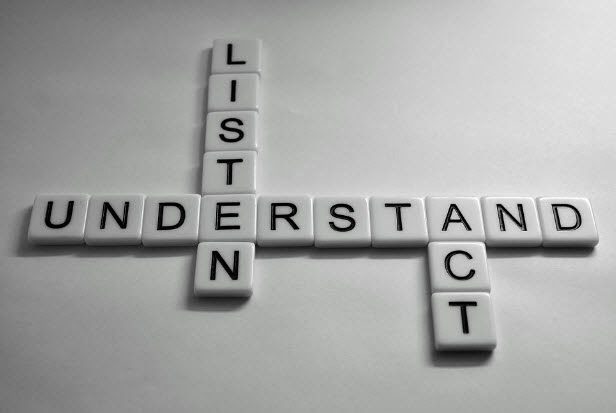There’s an old saying by a guy who founded the scout movement:
“If you make listening and observation your occupation, you will gain much more than you can by talking.” Robert Baden-Powell
Most of the time, most of us are fighting to be heard. Raising our tone doesn’t provide the desired effect; and physically demanding the attention of others is not an option now days. So how can you become the one person in the room that everyone listens to when a lot of voices are trying to be heard simultaneously?
The answer, ironically, is by listening to others…
Listening is the one life skill you can’t learn in school. Only people who understand intimately how communication works pay attention and, even then, only to a point. Past a certain point, everyone wants to be heard and acts accordingly. How does that saying go…in the jungle only the biggest gorillas are heard…
Well, we’re not living in the jungle anymore, are we? And size doesn’t matter when it comes to conversations between people, does it?
So what are the things that do matter?
Difference between hearing and listening
When we hear something, we’re only using one sense out of the five available to us. Listening, on the other hand, requires use of a broader set of senses; working in unison to interpret the meaning of an interaction we’re having.
Our ability to understand interactions by listening depends on:
1. Our alertness level.
2. Our ability to understand the transmitted message due to knowledge or experience.
3. The senses at work, i.e. if we only listen without actually seeing the person, we’re missing a fuller repertoire of non-verbal signals that will help us understand the transmitted message.
According to Wikipedia, the nonverbal senses we activate in interactions are – 83% sight, only 11% hearing, 3% smell, 2% touch and 1% taste.
When someone is telling you that you’ve heard, but you haven’t listened, he knows what he’s talking about! This means that we need to invest a lot to actually listen to someone. The best way to introduce a new behavior type into your communication portfolio is to create a habit out of it, it won’t come naturally.
How to create the habit of listening
Active listening skills can be easy to develop if you focus and make an effort. It’s not rocket science, but it does require a consistent and constant effort to overcome your natural instinct to be heard. Here are a few tips.
1 Not talking
Sounds pretty easy, right? However, this may be the toughest since many of us are busy talking or waiting for the moment to start talking. As I previously mentioned, listening requires focus and using your other senses, this means that you need to close your trap and focus on the person (or people) in front of you and let it all sink.
2 Patience
Giving the people you talk to enough time and space prior to and after speaking allows you to create the realization in their mind that someone listened to them. Furthermore, this enables them to catch their bearings and breath, express appreciation and interest in the topic by being patient.
3 Engage
Engaging people is a great way to show that you are listening and confirms understanding. When asking a question, try to confirm what you have understood as well as asking additional questions.
4 Respect
A distant observer can very quickly pick up on respect between two people speaking. Body posture, in particular, maintaining eye contact is sign of respect. Remember, you can still disagree, but keeping a low voice and non-aggressive posture helps communicate your position more effectively.
5 Positive
The best way to catch someone’s attention is by staying positive. Other people in the room will have a tendency to lean towards and listen to someone who is positive. Choose your words carefully. For example, why use the word “problems” when you can use “challenges” or even “opportunities for improvement”? What would you rather hear “awful” or “less than ideal”? Which speaker would you rather listen to?
Listening to someone increases your charisma
According to the art of manliness site:
“It’s now incredibly easy to set yourself apart from the pack simply by being fully present with people and giving them your complete attention.
“When you think of charisma, you might think of trying to make yourself seem super awesome to others. But the paradoxical secret of charisma is that it’s not about trumpeting your good qualities, but making the other person feel good about himself. Real charisma makes the other person feel important; when they finish an interaction with you, they feel better about themselves than they did before.
Focusing your mental and emotional energy on someone as you interact is how you create that feeling of importance. People fundamentally want attention – they want to be recognized and acknowledged. “
We tend to reciprocate gestures and compliment behaviors. If you constantly want to speak, then others will try to do the same, and ultimately not listen to you. If you are the one who is always patient and listening, then others will reciprocate.
Until next time!
| Written on 11/27/2013 by Haim Pekel. Haim Pekel is IQTELL’s marketing director. IQTELL is a productivity and a personal information management app that organizes Everything in One Place. IQTELL recently released an amazing feature that helps to process your emails quickly and effectively – we call it EZ Email processing . Learn more about IQTELL’s App and join a community supported by productivity buffs! Get the Productivity App Today! |
Photo Credit: Steven Shorrock
